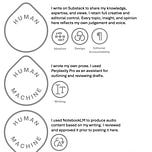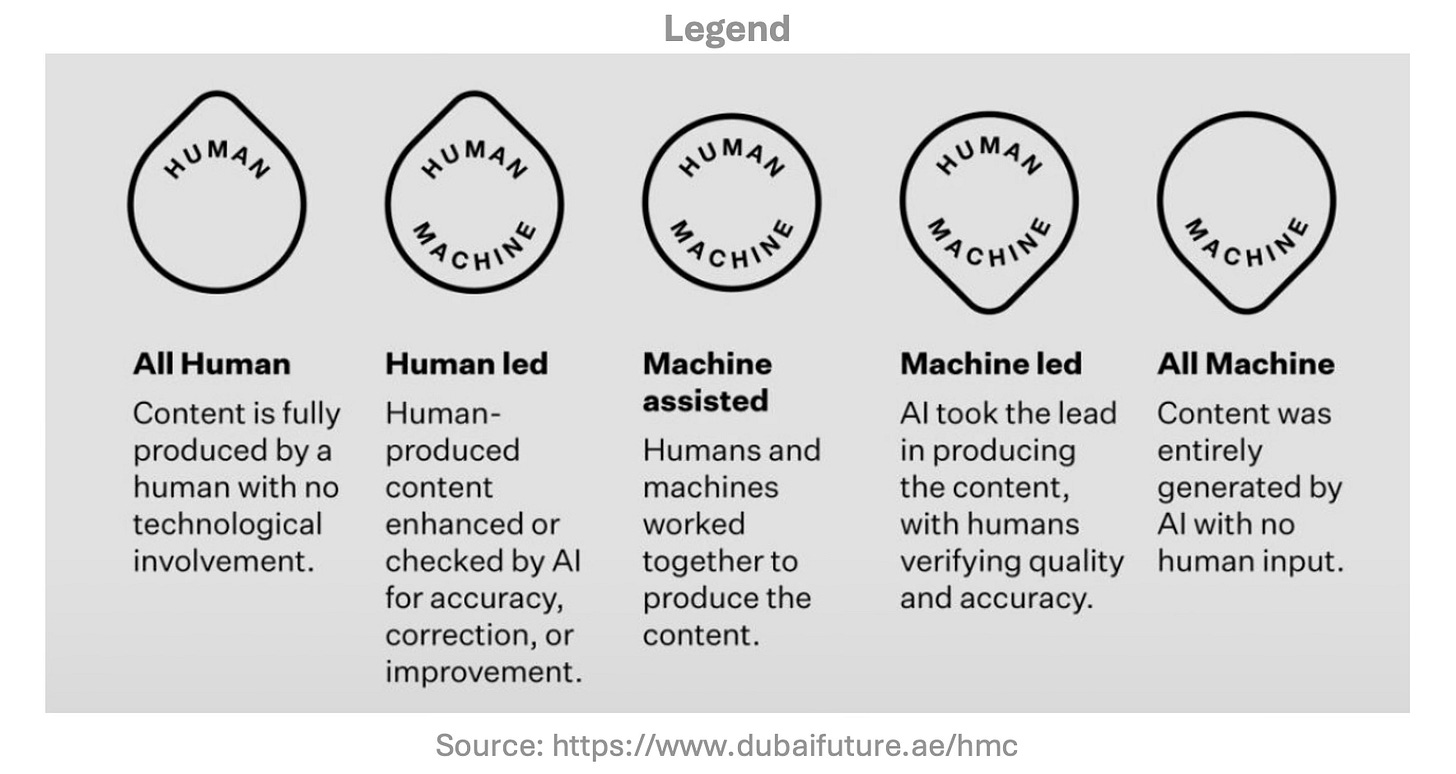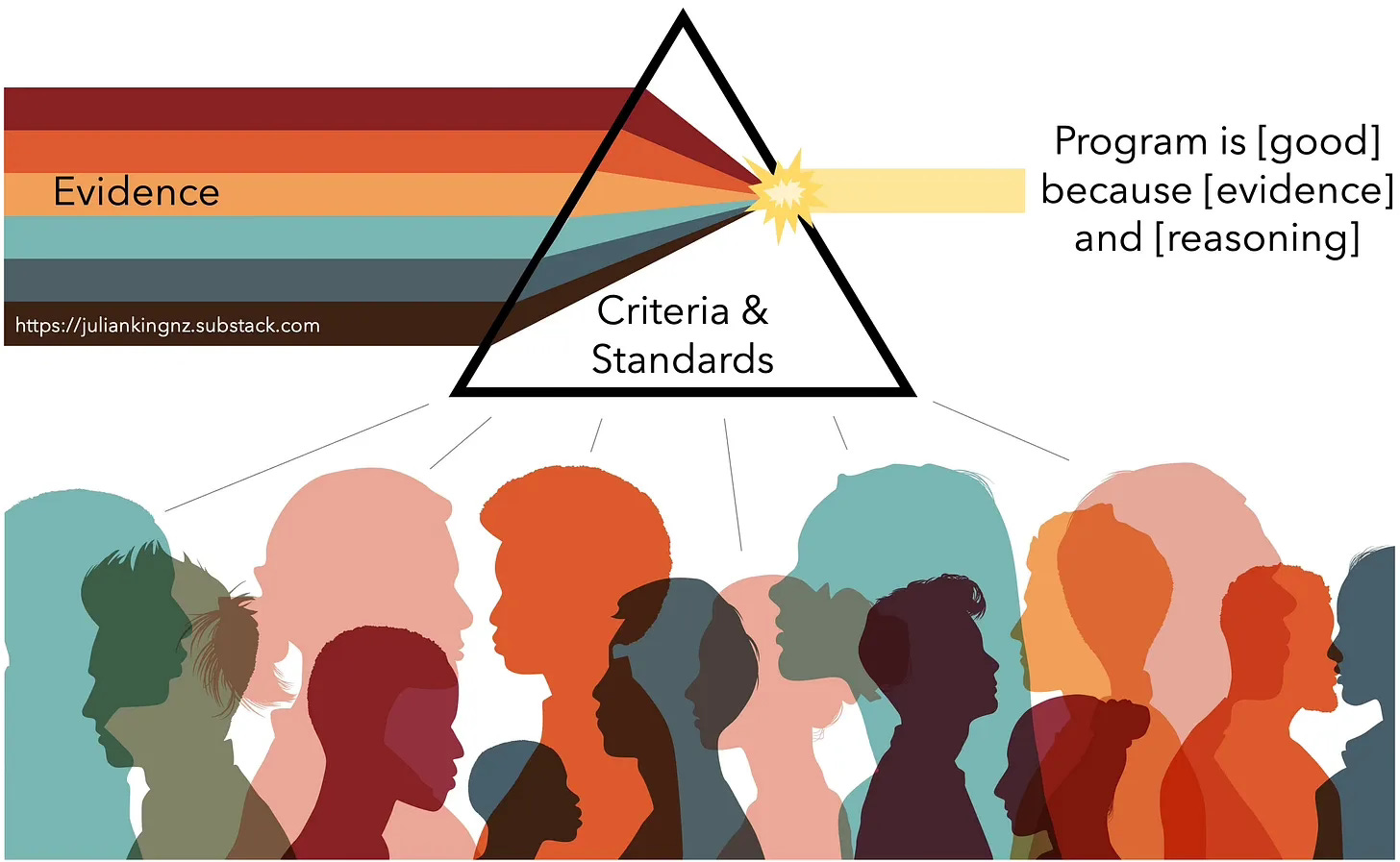Evaluative reasoning may not always be visible, but it occurs whenever we judge the value of something - from choosing dinner to allocating national healthcare resources. In professional evaluations, which involve making value judgements that affect other people’s lives, it’s best to make the chain of reasoning explicit.
This AI-generated podcast is based on my Substack article, “Criteria and standards: a logic, not a tool - and always there, whether explicit or not”. I posted the article a year ago. My subscriber list has doubled since then, so now seems a good moment to re-package the takeaways in a new format.
You’ll hear two synthetic voices in conversation about the article’s themes, making it sound remarkably like dialogue between real humans who found it a thought-provoking read.
The episode was created using Notebook LM, a standard AI tool that comes with my Google Suite. Thanks to Kate McKegg for alerting me to this tool!
As a caveat, the content is presented exactly as the AI generated it. It doesn’t come with editing options. Still, it conveys my main ideas accurately. I reviewed and approved it before posting it here. For extra detail and nuance, I encourage you to read the original article.
This podcast, and the article it’s based on, stand on the shoulders of evaluation theorists Michael Scriven, Deborah Fournier, E. Jane Davidson, and Thomas A. Schwandt.
I soft-launched my first audio post last week
Also created with NotebookLM, it covered “The Stone Tablets of Social Value: Ten Commandments for Social CBA and SROI”. You can check it out here.
I posted it quietly to Substack without emailing, and also shared it on LinkedIn, inviting feedback.
Sentiment was predominantly positive, with fascination and amazement at how lifelike the conversation sounded:
Oh wow, it’s bizarre - it sounds like the NYT daily podcast.
I’ve used NotebookLM too. I was also shocked at how real-sounding the voices were, and how smooth the entire episode was.
I have tried it ... it's spooky! :)
Some described practical use cases, including using the tool as a novel way of summarising and communicating:
I have been using it for several months now to audio-summarise several of our quite complex peer-reviewed journal articles and research projects. It’s a quick way to digest a topic during lunch!
I use it to tell my mom about our work. Plus, she is convinced I am on NPR every week, so she loves it!
A couple of commenters noted that audio can increase impact for some users, recognising individual differences in learning and engagement:
Having read the article and listened to the podcast, I found some of your content landed/resonated easier through the podcast. Possibly a cognitive thing for me but definitely a key take away.
Some people love and need to read to learn and understand, some people love and need to watch videos to learn and understand and some people love and need to hear (podcasts) to learn and understand.
The last commenter above also remarked on the importance of accuracy and transparency, in line with wider discussions in the AI field about ethics and disclosure.
So, as long as content creators double-check the correctness of AI produced content and as long as it’s clearly indicated as such - it’s a great way of increasing your reach :)
One connoisseur was just not into it:
An AI podcast? I will never listen to robots “discussing” anything. There is more wisdom in the sound of traffic.
What do you think of this format?
Written articles are my main thing on Substack. I won’t be replacing writing with audio, but could the occasional podcast about key articles be a worthwhile extension?
Would you listen to more podcasts?
50% discount offer: Grab a paid subscription by 31 July 2025 and you can access all articles on Evaluation and Value for Investment half-price forever (or as long as you want).







